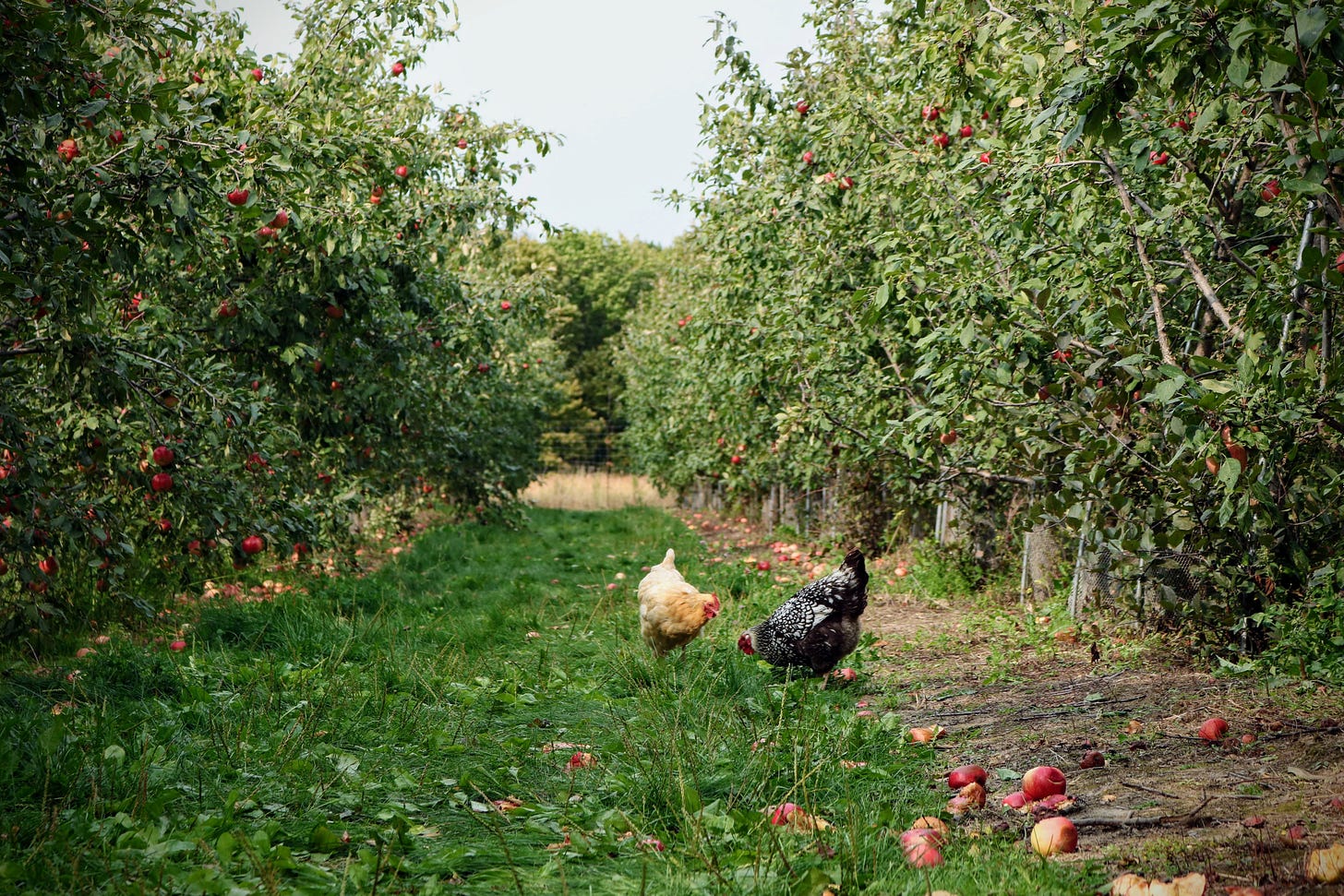You can listen to an audio version of this newsletter above. Please note that this is unedited and I’m recording in my home office, so you may hear some meows, raindrops, or traffic in the background.

When we say that something has “come to fruition,” we likely mean that it reached an ideal end point where we get to enjoy the fruit of our labors. Fruition comes from the Latin word frui, which means “to enjoy.”
When we talk about bringing our writing to fruition, we usually mean writing a full draft that is hopefully publishable.
But what if we shifted our thinking of “fruition” from the endpoint to the process—to the time when we’re metaphorically tending to the field, planting the seed, watering it, trimming the tree?
What if we valued the behind-the-scenes labor of our writing as fruitful, too? I mean the brainstorming, drafting, playing with ideas, and trying things out to see how they work, even if you end up deleting the words, because it helps you develop your writing.
If I reframe my experience as a writer as the practice of farming fruit, then imagine how much time I’ve spent tending to my orchards! Thousands of hours.
There’s an orchard for my poetry. The petals and seeds have been scattered around the world through publications but also have been preserved in dozens of notebooks as drafts where I honed my skills by playing with words.
I grew my journal article, conference papers, and dissertation in a different orchard. This one has a lot of rows to catalog the different theories and methods I discovered when I was learning how to do archival research.
There’s a third orchard that’s home to a beautiful new form of fruit. It is a cross-genre oasis I could only grow by combining my training in poetry with my training in scholarship. In this orchard, I tend to this Substack—a genre that blends personal narrative with research with creative writing, like this long-extended orchard metaphor.
If your current writing project was an orchard of fruit, how would you describe it?
Is it well-organized and blooming? Are the trees or bushes in need of more-frequent watering? Has the soil yet to be tilled and sowed with seeds?
Intimately knowing the landscape helps us plan effectively, tend to each piece at the appropriate time, and recognize our labor at all stages of the project.
Here are some gardening tips that may help:
Are the vines out of control and in need of some wooden posts to guide them toward the sky? Perhaps you would benefit from learning how to generate and fill in templates to provide an outline for your writing project.
What if you’ve stepped away from your orchard for a bit and when you return you’ve forgotten how to work the tools? You’re not starting from zero when you return to your writing. Consider how you might compassionately ease back into the project by refamiliarizing yourself with the tools and the plants.
And how about the exasperation you feel when you’ve spent hours weeding, your back hurts, and you still have five rows to go? That’s a great time to check in with your resources (time, energy, focus, etc.) and reprioritize during your writing session so you’ll make progress with intention.
Dr. Katy Peplin and I are going to cover approaches and tools just like these in our workshop this Wednesday, Structure as a Path to Sustainability. There is still time to sign up! We invite you to join us on May 10, 2023 from 10am-2pm EDT to learn and practice in real-time so you can experience increased clarity, direction, and momentum in your writing project. If you can’t attend the workshop live, or can only be there for a portion, don’t worry—we are recording the session and sharing it with all registrants! If you have any questions, shoot me an email at kate@KateHenry.com.
Curiosities
This section of my letters is for things that made me say “hmmm” or “wow!” recently.
We have two bunnies that chow down on grass in our back yard and I’ve taken to calling them Sad Boy and Lola. If you’re a follower of Poet Square Cats on social media, you’ll recognize these names as the resident cat couple who hang out on a carport. Poet Square Cats is run by a woman named Courtney who I met in grad school, so it’s especially cool to know she’s writing a book about her experience caring for feral cats and doing TNR (trap-neuter-return) to support the cats in Tucson, Arizona.
I’m excited that Jen Carrington and Sara Tasker are releasing new episodes of their podcast Letters from a Hopeful Creative. As a small business owner who lives with chronic health conditions, I find their episodes practical and inspiring.
For Your Consideration
Sign up for my events at Bloom Local May 17th and 18th
Follow me on Instagram
My offerings: 1-on-1 Coaching (10% discount for paid subscribers) and workshops
Sign up for the waitlist for Perceptible Progress: A Goals Course (running Summer 2023!)
Order my book, Tend to It: A Holistic Guide to Intentional Productivity
Listen to my podcast interviews
xo,
Dr. Kate








'What if we valued the behind-the-scenes labor of our writing as fruitful, too? ' I loved this - and your orchard metaphor!! It's such a refreshing idea to think of all the things that contribute to our writing, rather than chastising ourselves for the time spent 'not writing'. For me, it's often the times when I'm doing something unconnected that I have the ideas to take back to my writing. Thank you for this : )
Thank you for this lovely letter, Kate! I recently have gotten obsessed with fruit trees (figuring out which ones to plant in my garden; learning how to grow them), so this analogy felt all the more relevant and clear. I love how encouraging your letters are. I am also very excited about your new cross-genre orchard. :)